Femininity and Feminism
 04.7.2012
04.7.2012 
What was it Simone de Beauvoir said about being a woman? “One is not born a woman, but rather becomes, a woman.”
I disagree. Nothing could be easier for most of us than being the sex we are born.
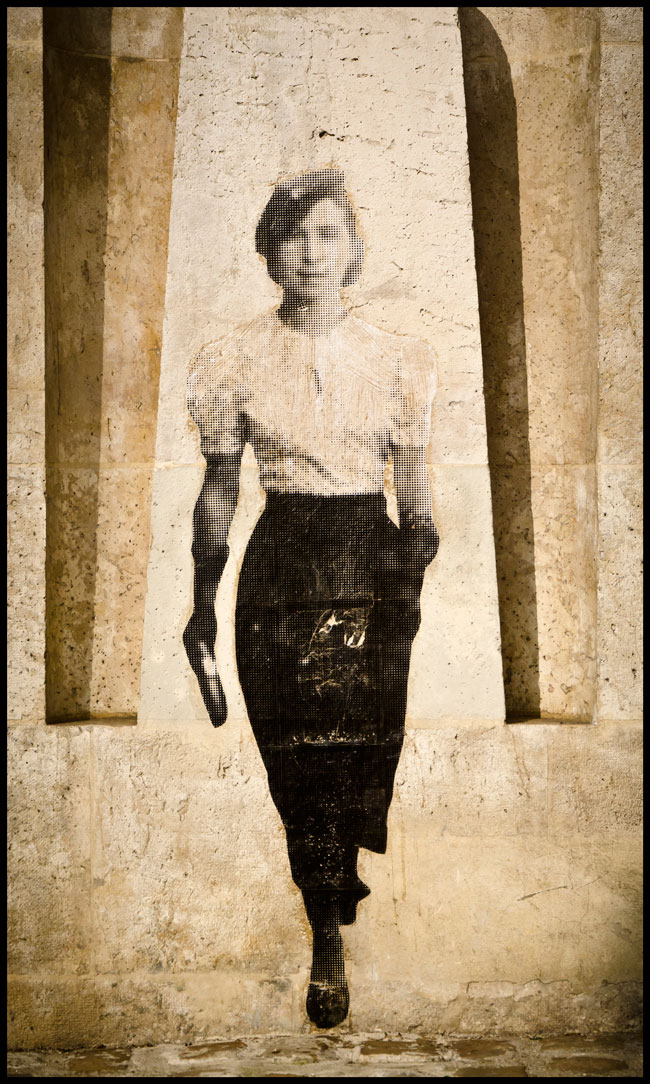
While men's and women's differences are to some extent culturally determined, many of our differences are innate.
Women are more attuned to nuances of relationship than men.
Women are more radial in their sensibility.
Men tend to find it easier to stay focused on getting to their goals.

Men tend to be more linear in sensibility.
Generalizations, I know. But for the most part, I’ve found them to be true.
I know a gifted psychotherapist, one of whose specialties is couples counseling. She once told me that with most couples, when you ask the man what he wants in a relationship, she usually hears, “I just want her to be happy.”

In the realm of relationships, men are simpler, she says. They want to be appreciated. They want to be admired. They want their women to be happy.
The great psychiatrist and mythographer, C. G. Jung, had another angle on the subject: he came up with the notion of the anima and the animus, the contra-sexual being inside both women and men. Men have within them an image of the feminine, or a female soul. Women have within them, the image of the masculine, or male spirit.
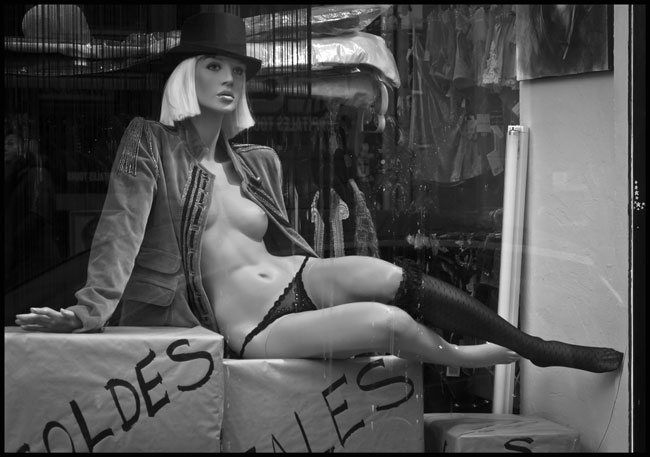
I went on amateurishly to sketch a plan of the soul so that in each of us two powers preside, one male, one female; and in the man’s brain the man predominates over the woman, and in the woman’s brain the woman predominates over the man. The normal and comfortable state of being is that when the two live in harmony together, spiritually co-operating.

To be successful the mind must possess an ignorance of sex, Woolf writes in A Room of One’s Own:
the mind of an artist, in order to achieve the prodigious effort of freeing whole and entire the work that is in him, must be incandescent, like Shakespeare’s mind.
I seem to be circling around what I want to say. And I can’t really approach it through generalizations. (If I were a man, I’d have gotten to the point by now.) I can only approach it by recalling certain moments in my life that still resonate.
Some happened before I was born. Others happened afterwards.
What shall I call these moments?
What if they all together added up to a constellation, a metaphorical shape in the sky? A shape I won’t recognize without first laying them all out, like stars?
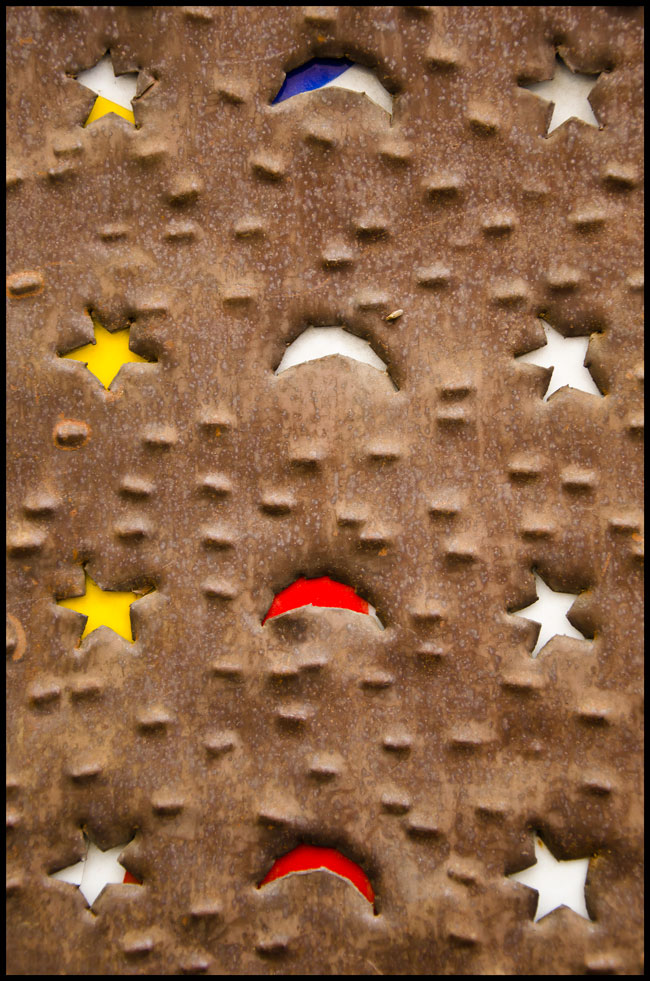
So, stars:
Star: It is 1945. My father is in the Navy. My mother travels from their apartment in Greenwich Village to her childhood home in Fairmont, Minnesota.
Her father, my grandfather, had left the farm on which he was raised to go to medical school, to escape the life of a farmer. He was now a brilliant medical diagnostician, a beloved family doctor.

His oldest child and only daughter, my mother, always wanted to be a doctor, and had her father’s gift for it.
No, he said, since they wanted six children, he’d be happy to earn the living for the family while she raised the children.
My grandfather and my mother’s brother, himself a doctor, also dissuade my mother from going to medical school. Why do women need to go through all that?
Star: My parents have five children rather than the six they planned. Four are girls. My brother is given a middle name. We girls are not, presumably because we’ll marry and get name #3 that way.
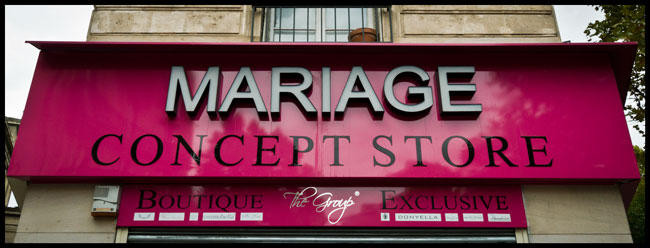
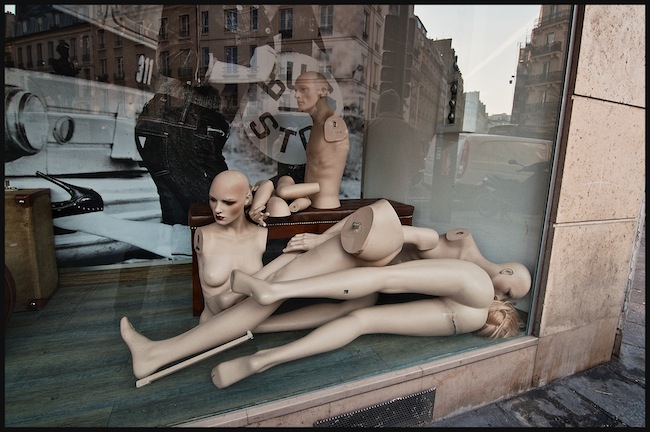

I do so, with no discussion of his decision. We move from a ranch in Novato to an 85-foot schooner. We move from land to the sea. We move from the life of being a couple to being a “crew.” I don’t question that he hasn’t even asked me whether this life appeals to me.

Star: We sail from Honolulu to Marina del Rey. We are a crew of ten. We move to a shipyard in Newport Beach, where we’ll renovate the ship for the next two years. Everyone chooses jobs on the schooner. Since I’m the only woman who lives full-time on the boat, it is assumed that my job is to cook. I don’t like to cook, though I’m perfectly good at it. And anyway, I can’t rebuild engines.
Star: It’s 1972. It’s the Virgo decade, the decade of Demeter. Everyone is tuning up their health by careful dietary choices. The men want no dairy in their diets. They want home-made corn bread and three meals with three or four courses each a day. But we’re rebuilding the galley, and don’t have a refrigerator or stove, so I must market once or twice a day and cook on an hibachi in the noisy, dusty shipyard.

At the market one day, I pick up the first issue of Ms. Magazine.
The ship is an optical illusion, a mirage. From the outside it looks like the ultimately glamorous life: we’re rebuilding her to sail around the world.

Groupies flock around the single male crew members. These are seriously mentally challenged “chicks” and the turnover is high. It is my job to comfort the broken hearts of girls who were attracted to adventurous guys who have something they want (a free ticket to sail around the world) but who quickly grow tired of them.
From the inside, this life is anything but glamorous. It is hard physical labor all day long, seven days a week. It is a perfect life for an extraverted action type who loves being surrounded by people and adores physical labor, like sanding masts, rebuilding engines, pumping the bilge.
For an introverted intuitive type like me (you know, a dreamer), it is my definition of hell.
I beg my boyfriend to leave the boat. He doesn’t hear me for two years. “Think of the adventures we’ll have sailing around the world,” he says.
But it’s too many people, too little time for reading and writing or any of the things I like to do.
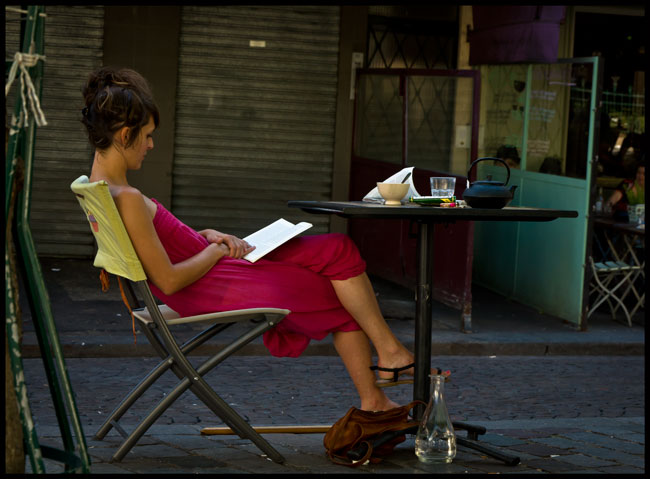
Star: A. and I rent a little apartment on the beach in Laguna Beach. It is so small that we have to halve the day. He leaves in the a.m. to give me silence to write. I leave in the afternoon to give him solitude to paint. His friends knock on the door all morning looking for him. I ask him to tell them to stop by during his “studio hours.” One leaves me an anonymous nasty cartoon. How dare a woman try to have silence, a space of her own?

I ask A. to go to counseling with me. He doesn’t see the need, refuses.
I leave him, get involved with another man.
Now A. offers me whatever I want, silence in the morning, communication, counseling, anything. But it’s too late.

Star: I live in hiding on the other side of the country for a year and a half, until he tracks me down by breaking into my parents’ home.
Star: Ten years later in Santa Fe, I become a traveling art dealer. I don’t pay enough attention to appearance, clothes, but in this job, with high-end buyers, I must refine my wardrobe and appearance. I borrow a gorgeous black cotton dress from a good friend, pair it with a concho belt my mother has given me, and looking my best, interview for the job, get it, and go to artists’ studios to look at their work.

One of the male painters says, “She’s too good-looking to be any good as an art agent” to a friend of mine, who tells me what he said.
In my first art-selling trip to Arizona, I snag three banks, am asked to fill them with art of my choosing, paintings and sculptures of the artists whose work I carry. I place no paintings by this artist in any of the banks. Another artist is able to put a down payment on his first home from the paintings that have sold.
Star: In Santa Fe I complete a vision quest of thirty years. What I discover at the center of the labyrinth is that the breakdown I experienced in my first year of college, post-loss of religious faith, post-boarding school structure, was not a merely personal drama.
The confusion about values, about my path and focus, was a refusal of an entire cultural construct: a patriarchal world in which nature is not honored, women are not revered, all is driven by the masculine values of progress, economics, power, domination. And the soul, being, relationships, love, the sacred, the earth, are lesser values or ignored altogether.
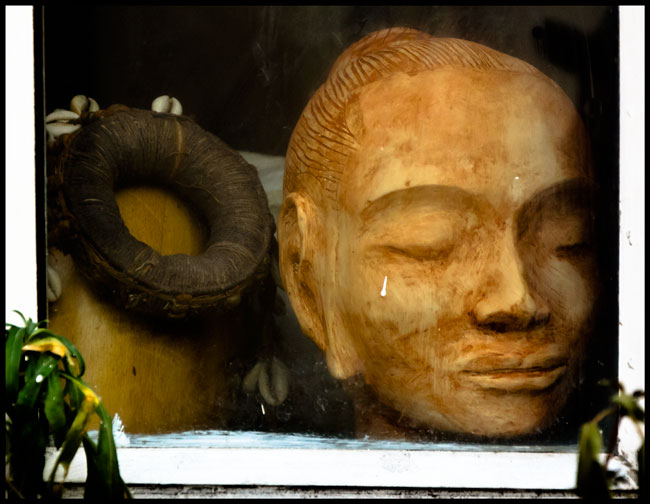
Long after I become clear about my own spiritual values, and work…
Long after the influence of Virginia Woolf, Simone de Beauvoir, Betty Friedan, Doris Lessing, Anais Nin, Ms. Magazine…
Long after the lessons of the ‘60s and ‘70s about equality between women and men have become a part of our cultural conversation…
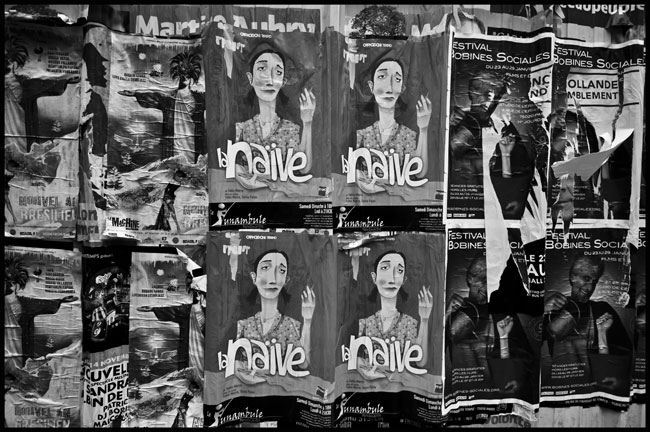
I hear women denying they are feminists, or splitting hairs in defining it:
“Poor men—it hurts their feelings.”
“Feminism needs to be more feminine.”
Or from women who’ve been getting by for years by being seductive: “I’ve never had any trouble as a woman getting what I want.”

“Poor white people. You wouldn’t want to hurt their feelings, now would you?”
“We just need to be more pliable, less demanding.”
This is just plain absurd. Nothing at all changes without the first revolutionary activists. It’s their very anger—that fire, that light—that blazes the trail, lights the way.
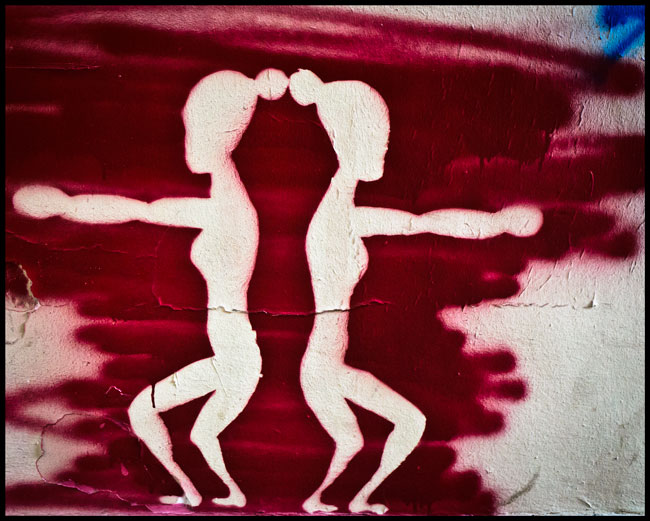
I have a few questions I’d like to ask you women who deny or negate feminism:
Have you ever been dissuaded from doing the work you wanted to do because you’re a woman?
Even if you proceeded with the work you wanted to do, have you ever had others in your life consider it secondary to matters of relationship, others’ expectations of you as wife, girlfriend, mother, friend?

Have you ever been punished for your looks—looking “too good,” or looking “not good enough?”
Have you ever had life decisions made for you, without being consulted, because you are a woman?

Have you ever feared for your life because a man wanted something from you that you didn’t want to give him?
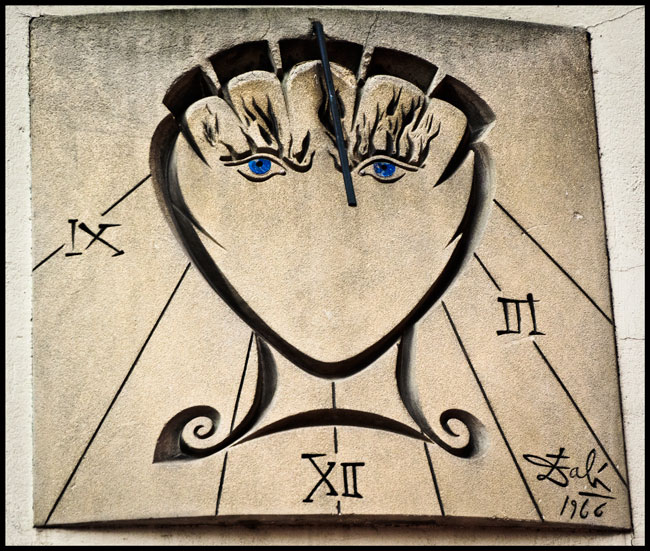 Street art by Salvador Dali
Street art by Salvador Dali

Reader Comments (27)
thank you for this!
Jessica,
You are so welcome! Thank you for letting us know you enjoyed the post.
XOXO,
Kaaren (& Richard)
beautiful photos and narrative!! such clarity of both eye and mind!
Dear Katherine,
Thank you! And Richard the photographer thanks you!
Please send us an anecdote about your own experience of feminism, if you are so moved.
Love,
Kaaren (& Richard)
Yes. I have felt these things that you've written about. I always wanted to be an airline pilot and become a pilot, but women weren't hired back then for commercial flying. That's just one of the things I missed out on.
Great article and pictures.
Susan
From one "introverted, intuitive type" to another.... I love it. This is a very interesting piece, Kaaren, and really makes me reflect, much of which is pretty painful. Thanks so much for sharing.
Dear Susan,
Oh boy, do I wish I knew WHICH of our friends named Susan you are. Please tell us!
Wanting to be a pilot--wow. You must be a sensory (action) type, in Jung's terms. So that rules out certain Susans we know who are intuitive types who'd never dream of being pilots. But still, that leaves a mystery. Oh, please, don't keep us in suspense too long.
Thank you for the appreciation, from both of us.
Love,
Kaaren (& Richard)
Dear Wendy,
Wonderful to hear from you. And thank you! Now you've got me wanting to hear YOUR stories. Send us one and we'll publish it next week. It can be just a few lines, an anecdote, or something longer. Tell us a story.
Love,
Kaaren (& Richard)
Bravo! Brilliant, witty, deep and provocative! Richard's photographs are superb! Where on Earth do you find those images?!
Very clear picture of Kaaren's sky. Couldn't find Richard's star in it though.... Would it be anti-feminist to say that the greatest happiness for woman is the right man in her life?
And I have a thing or two to compare: studying first at Moscow State University's physical-mathematical boarding school (90% boys), later Moscow Institute of Electronics Engineering (70% boys), successful carreer as engineer, marketing manager and business consultant, good if not passionate (now-ended) marriage, two beautiful talented daughters, a lovely granddaugther...
And it's our mutual passion with (my) Richard that makes me so blissfully happy and fulfilled.
Have I lost my mind? :-)
Margarita!
What a terrific message! Thank you. I, too, marvel at where Richard finds these images. I think he’s a hunter stalking rare and wondrous photo-beasts. All of them were taken in Paris with the exception of the Ballerina Clown by Jonathan Borofsky in Venice, California.
Um, this is not a picture of “Kaaren’s sky.” It’s a metaphor for ONE CONSTELLATION in Kaaren’s sky. Every mini-story I told has much more complexity and texture to it, and even delight, but that’s to be dramatized in short story or novel form. These are just snapshots of why I call myself a feminist.
Other constellations: I’ve written of them elsewhere in Paris Play so often that I sometimes worry that others might have heard just about enough about blissful mutual love from us.
I would qualify what you said (“Would it be anti-feminist to say that the greatest happiness for woman is the right man in her life?”): Not at all. I applaud whatever is any individual’s highest bliss. Feminism is not about denying love. It’s about allowing women the choice to follow their own bliss, rather than having their choices controlled by others, or even by cultural expectations. It’s about freedom.
My own recipe for bliss is balanced between the right love (oh, how long it took me to find), and the right work. I think of Jung’s and Virginia Woolf’s description of male and female in both of us in this way: love is the female realm in both men and women; work is the male realm for both men and women. A life without work for which you have a passion would be unthinkable for me. It hurts my heart to think of all the women throughout history who were denied that balance, that wholeness, of freely chosen love and work. It hurts my heart still to read of women in Pakistan and India who have had acid thrown on their faces and bodies; women in Afghanistan who are forbidden education or independence; women who are stoned to death for daring to love someone not of their family’s choosing, or daring to pursue the path to their chosen work. We all want freedom to find our own recipe for wholeness. And every human being deserves it, if he/she is not endangering others.
“Have I lost my mind?” Hardly. I know from your education and our friendship with you that your mind is brilliant. And you, and I, and both our Richards, happen to be privileged in having grown up in cultures where we were able to get educated. But I will use the term “feminist” as a necessary descriptive as long as there are women in the world who are denied the freedom to work and love as they choose. Even many of the hard-won freedoms that American women have enjoyed for the past thirty or so years are being eroded right now.
Much love,
Kaaren (& Richard)
Fabulous post - the relationship btw the gorgeous photography and luminous text is especially wonderful in this one - thank you! xox
Dear Tara,
We are grateful to you for your words. You're a freedom fighter too, in your novels and in your life, and we love that about you.
Thank you and much love,
Kaaren (& Richard)
Raised in the '50s and '60s, privileged life, boarding school and then literally flung out into a world that was dramatically changing-1963. Drank my way through one year of college, flunked out and then had to grow up. I had no idea what I wanted to do. Worked for a bit, married a very good, liberated man, helped him finish college, protested against the war, screamed for women' s rights, had 2 of my 3 sons and wanted desperately to go to med school and take care of women. Well as it so happened in 1971 there wasn't a med school in this country that would accept a married woman with children "much too high risk Ma'am". Well I chose nursing much to the chagrin of some of my family (grandmother, great aunt, etc). My immediate family was very supportive- my mother in particular whose father told her during WW2 when she wanted to become a nurse "Marjorie dear, women of our class do not become nurses." I went on to become an RN and obtained my BSN, worked in women's health care, went on for my MN and have had my own womens's health care practice for over 10 years. Nurse practitioners have won independent practice in more than 50% of the states mainly because of the strength of strong women and men. It has been a rocky road at times but so worth the effort. It scares me more than I ever thought that women would ever be pulled back into the dark ages but it is happening and we have to stop it.
Mystery solved! I had a hunch the friend who wanted to be a pilot was Susan Welsh, and yes, it is.
Susan, my wish for you: that you become a pilot in your next life, and that you take me on a trip to Africa in your plane. Okay?
Love,
Kaaren
Dear Kaaren ~
Oh, my. So honest this is. And brave. You've elucidated so much here. This post brought back a frustrating and painful blur of impressions from my own past experience of being patronized, objectified, and dismissed in ways both subtle/insidious and explicit/crude - too many to begin detailing here. And I share your deep concern about men and women - especially young women, including my students - who characterize feminism as "ugly" or "shrill" or "too butch" or even "not for me... we don't need it anymore." But given the culture we're swimming in, is it any wonder? "Feminism" as a label has been successfully hijacked and twisted into something unrecognizable, so that we are now backsliding from the earlier gains made by our feminist mothers and sisters. (Your analogy about racism seems apt here; at least in the U.S. there is an emboldened and horrifying surge in blatant racism, as well as unabashed misogyny.) Honestly, this stuff breaks my heart and enrages me at the same time. And women are constantly being "put in their place" by more and more overt hostility. (Here is just one representative example: Laurie Penny: A Woman's Opinion Is the Miniskirt of the Internet)
I'm grateful that I am now une femme d'un certain age and encounter less overt sexism than when I was in my twenties and thirties. But I have not forgotten. And I try now to examine my own actions and reactions through the lens of that conditioning. And even if I'm no longer as directly affected, I remain infuriated by politicians and religious leaders and ordinary men and women who have attitudes of such callous disregard for the basic human rights of women.
Thank you for sharing your wisdom, my dear friend. And thanks to Richard - an ardent and admirable feminist of the male variety - for his wonderful images.
Missing you... and sending love to you both! ♥
~ dawna
Kaaren and Richard,
I woke up in the middle of the night thinking about this Paris Play after the first time I read it. What stuck with me first was the mention of you and your sisters not receiving middle names. My mother was also not given a middle name--for the same reason--that she would presumably someday marry and have three names (although I still don't understand why it's such a pain in the ass to have four, or to drop one). I remember my mother sort of smiling and rolling her eyes when she told us about the reason for her not having a middle name -- and even as very young children, my siblings and I understood how sexist it was (even if we didn't yet know the word for it).
Thank you for being brave and sharing so much. You have lived lives in this lifetime -- I am so grateful for your stories, your experience, your clarity and your insight. It made me wonder about so much in my life -- where I've been, where I am now, what will be for my feisty, passionate little daughter as she grows up.
Richard, the photos -- ! Punctuation. My favorites: man walking the wall horizontally and mannequin in pieces.
I will write more via email.
xoj
Dear Audrey,
I love hearing this story. Of course you had no idea what you wanted to do. No one talked about women's professions then. I'm so glad you found a way to enter the health care profession. You were lucky to find Stan at such an early age, and fortunate that your mother backed up your career dream.
Yes, women are in danger of going backwards, and many don't realize that if we don't fight this, we WILL be back in the Dark Ages in terms of protecting women's health. I am continually struck by how enlightened the French are about women's health care. How amused they are by the fear of socialism in the U.S. Because what could be better than free health care, even a woman who comes to help new mothers after they've given birth, and it's free? I wonder when we'll wake up and catch up in the U. S.
Much love,
Kaaren (& Richard)
Dear Dawna,
Thank you for this eloquent comment. I'm curious: what do you say to female students who think feminists are "ugly" or that the time for feminist protest is over? I think it would be fascinating to discuss this with both male and female students, in class or outside it.
The Laura Penny article is outrageous. I wonder if the vitriol aimed at outspoken female journalists is worse in England than in other countries. Yet my experience in college in England was that Englishmen are more androgynous, less threatened by strong women than other cultures I know.
FIrst there's sexism. Then ageism. A French woman I know said that if you lose your job in France at the age of 45, your chances of being hired again are very very slim.
I think we have to be freedom fighters our whole lives, whether or not a callous attitude or policy directly affects us. I'm baffled by women who say, But I haven't noticed any prejudice against me as a woman. (I want to say, And you probably haven't noticed it anywhere else in the world either, have you.)
Thank you so much for your appreciation, Dawna. Richard thanks you, too.
Much love,
Kaaren (& Richard)
Dear Jennifer,
What I love about your fiction is that the narrator sees men and women as fully human. I think that's connected to when you came of age (as well as your deep seeing into the human psyche). Your mother was aware of sexism, so naturally passed that on to you and your siblings.
It's funny how much easier it is to tell vulnerable personal stories in an online journal that we publlsh ourselves than it would be in almost any other forum. I'm not sure why...
I'd love to sit down with you and hear your stories. But since we live on different continents, write a few down and send them to me! Everything you've told me about how you are raising your daughter, and the kinds of things she says and does, makes me think SHE will be just fine.
Isn't that man walking up the wall a great shot? That's one realm that belongs almost entirely to very young men: daredevil physical feats. And he keeps on surprising me, that photographer!
I'd love to hear more about the reading you went to on Sunday of our friends' work!
Love,
Kaaren (& Richard)
Dear Kaaren,
I agree that holding a real conversation about sexism with students would be fascinating. I usually try to "sneak in" my "feminist agenda" (haha) via assignments and readings including Voltaire and contemporary articles that demonstrate the mistreatment of women. The young women (and men) in my classes seem to be able to respond passionately to specific situations (e.g. the acid attacks in Pakistan, the sexualizing depiction of women and girls in ads, the stubborn discrepancy in pay for equal work) and I try to gently reinforce that we're talking about "women's rights" which is far more palatable (to them) than "feminism."
The Laurie Penny article actually happened to be the first in my list of bookmarked articles on a similar theme. That internet-emboldened hostility against women bloggers, reporters, et al, is definitely not just the UK - it is true here in the U.S. and elsewhere, too. But such threats of violence are also commonly directed at people of color who have a presence on the web. Again, I can't help but see the rise in overt racism and misogyny as linked.
Ahhh, yes, ageism. That's next up. While it definitely exists here, my guess is that in France it may be more prevalent, at least for women. Yet, weirdly, don't the French have an appreciation for older women? (Unlike the U.S. where there seems to be an ever-regressing standard of beauty that comes dangerously close to girl-child worship.) Or is that impression about France a myth?
In any case, I try to remember how lucky we are compared to women of 50 or 100 years ago. But that doesn't mean we have to settle. :)
Sending you love!
dawna